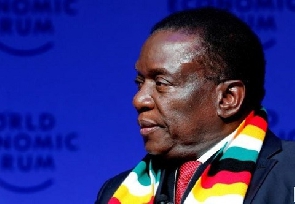Zimbabwean lawmakers upheld plans to charge candidates for president $20,000 to appear on the ballot and those running for parliament $1,000 despite a bid by the opposition to reduce the fees before a deadline next week for candidates to register.
The fees, denominated in United States dollars, are a 20-fold increase from fees charged in the previous elections in 2018.
During a debate on Wednesday, parliamentarians of the ruling ZANU-PF party said the policy would ensure that only strong candidates run for office. They secured parliament’s approval of the electoral commission measure after the Constitutional Court ruled last week that lawmakers must debate it.
The opposition party Citizens Coalition for Change (CCC) said the measure would undermine the right to stand for office and sought to reduce the fees in time for Wednesday’s registration deadline.
“Democracy should never be for sale,” CC spokesperson Fadzayi Mahere. “Nomination fees that discriminate against citizens based on their economic status and shut out the poor and marginalized violate … the Constitution. What’s beyond doubt is that ZANU PF is continuously anti-poor and trying to close citizen representatives out. That said, we won’t be deterred.”
Zimbabwe will hold its presidential and parliamentary elections on August 23 during an economic crisis.
President Emmerson Mnangagwa, elected in 2018 after a coup that deposed Robert Mugabe the previous year, will be seeking a second term. The 80-year-old’s main rival is lawyer and pastor Nelson Chamisa, 45, who leads the newly formed CCC.
In March 2022, the CCC won 19 out of 28 National Assembly seats in parliamentary by-elections, setting the stage for a close race between it and the ZANU-PF in the August 23 vote.
Africa News of Friday, 16 June 2023
Source: aljazeera.com

















